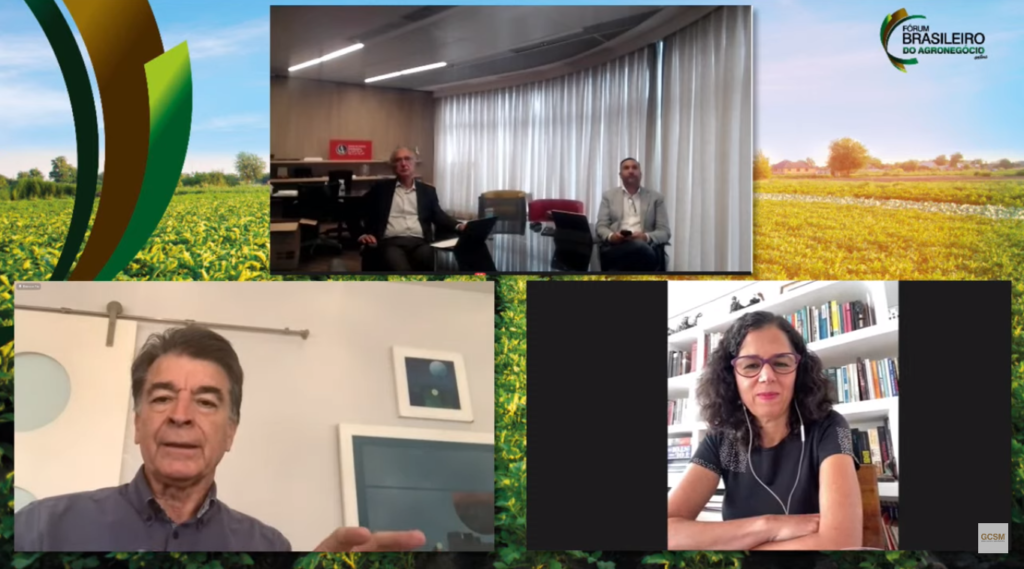São Paulo – Brazil has a challenge and an opportunity ahead to step up the sales of value-added agricultural goods to the Arab countries, said Arab Brazilian Chamber of Commerce (ABCC) president Rubens Hannun. He spoke during an online lecture in the Brazilian Agribusiness Forum on Monday (19). Besides the president, ABCC secretary-general Tamer Mansour also participated in “The Importance of the International Food and Beverage Trade for the Brazilian Agribusiness” panel (pictured above).
The executives pointed out the prominent role of the Arab countries, the second most relevant bloc for agribusiness exports from Brazil. “In the first quarter of 2021, we stepped up agricultural sales to Arabs by 9%. They are extremely loyal countries, even amid moments of restrictions in exports,” said Hannun.
In addition to the bloc’s top buyers – Saudi Arabia, Egypt, and the United Arab Emirates – the president stressed the “dramatic growth of Bahrain”, Qatar and Morocco in recent months. He believes the growth trend is strong in Brazilian trade with Arab countries such as Yemen and Libya. “But we have a very big challenge ahead as most of our products are commodities. So, we also have an opportunity to include more value-added products,” said Hannun.
Likewise, Mansour pointed out the trade with Arabs is a win-win partnership. “Unfortunately, we still export many unindustrialized products. Now we must seed the Arab countries as hubs for our [value-added] products. In Africa, we have Egypt, Morocco. In the Gulf, the UAE, Bahrain, as well as the Saudis, which can be considered as hubs for the halal market,” stressed the ABCC secretary-general.
Wine
The moderator of the panel on foreign trade, Silvio Pires de Paula of the Demand Pesquisas firm, pointed out the influence of the pandemic on consumptions such as wine. “The wine consumption has increased sharply in this isolation period, but the Brazilian wine has not been so exported,” he considered.
For Suzana Barelli, a journalist who specializes in wines, the figures from the Ideal Consulting firm on the pandemic show that domestic growth has really grown. “Last year, the wine market grew by 32%, which was mainly driven by the Brazilian wine. The table wine, for example, didn’t grow more just because of infrastructure issues,” she explains on the lack of products required to pack the products.
On the other hand, the exporting practice has yet to be spread across the country. “The farmer is just now starting to think on exporting. The domestic market is big, and many producers used to be very simple as they were small-sized company and many of them didn’t speak English, so this was not a thing,” explained the journalist.
She believes, though, that exports from Brazil are rebounding in markets such as the United States and China. “In January and February of 2021, exports doubled compared to a year ago. When they take Brazilian wines in their baggage, people get surprised with the high quality of our wine,” she points out.
The online event took place from 8:30 am to 6:30 pm and was held by the Global Council of Sales Marketing (GCSM). To watch the full forum, please visit the GCSM’s YouTube channel.
Translated by Guilherme Miranda




